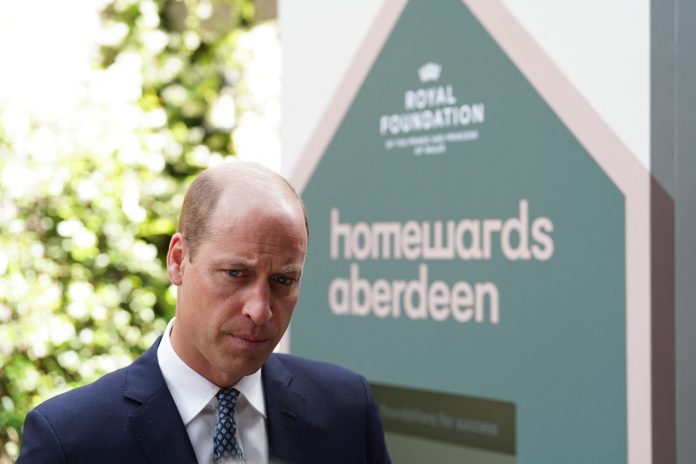Heir to the throne Prince William responds to criticism over his three homes and 135,000-acre estate in the Duchy of Cornwall, saying that this kind of criticism encourages him to try to end homelessness in the United Kingdom.
In Prince William: We Can End Homelessness, LBC radio presenter James O’Brien quotes criticism from Graeme Smith, chief executive of Republic, an anti-monarchy group, who says homelessness is a matter of public policy and investment and will not be stopped by charity or royal patronage, according to The Guardian.
William, in response to a question about what he thinks of the criticism of Homewards, states the following: “I think if I answered every critic, I’d be here all day. But you know, criticism drives you forward.”
“I think it’s right to question but I think, ultimately, we are pushing forward to deliver change and hope and optimism into a world that frankly has had very little of it for a long time. I hope I can bring something that hasn’t been done before. I’m not sitting here saying I’m going to solve the entire world’s homelessness problems. But I am going to show people how to prevent homelessness,” he adds.
The prince tells the documentary team he has discussed homelessness with his three children, George, Charlotte, and Louis on the school run.
“The first few times I thought, do I bring this up? Or should I wait and see if any of them noticed? And sure enough, they did, and they were just sort of in silence after I had said what was going on. And I do think it’s really important that you start those conversations when the children are small, so that they understand the world around them and they’re not just living, you know, in their own little worlds.”
The two-part ITV documentary airs on Wednesday and Thursday and traces his life during the first year after the launch of Homewards.
Homelessness is a particularly acute problem in Britain, as the number of homeless or at-risk people aged between 16 and 24 is estimated to have risen to more than 130,000. More than 350,000 people in Britain are without a permanent home.
